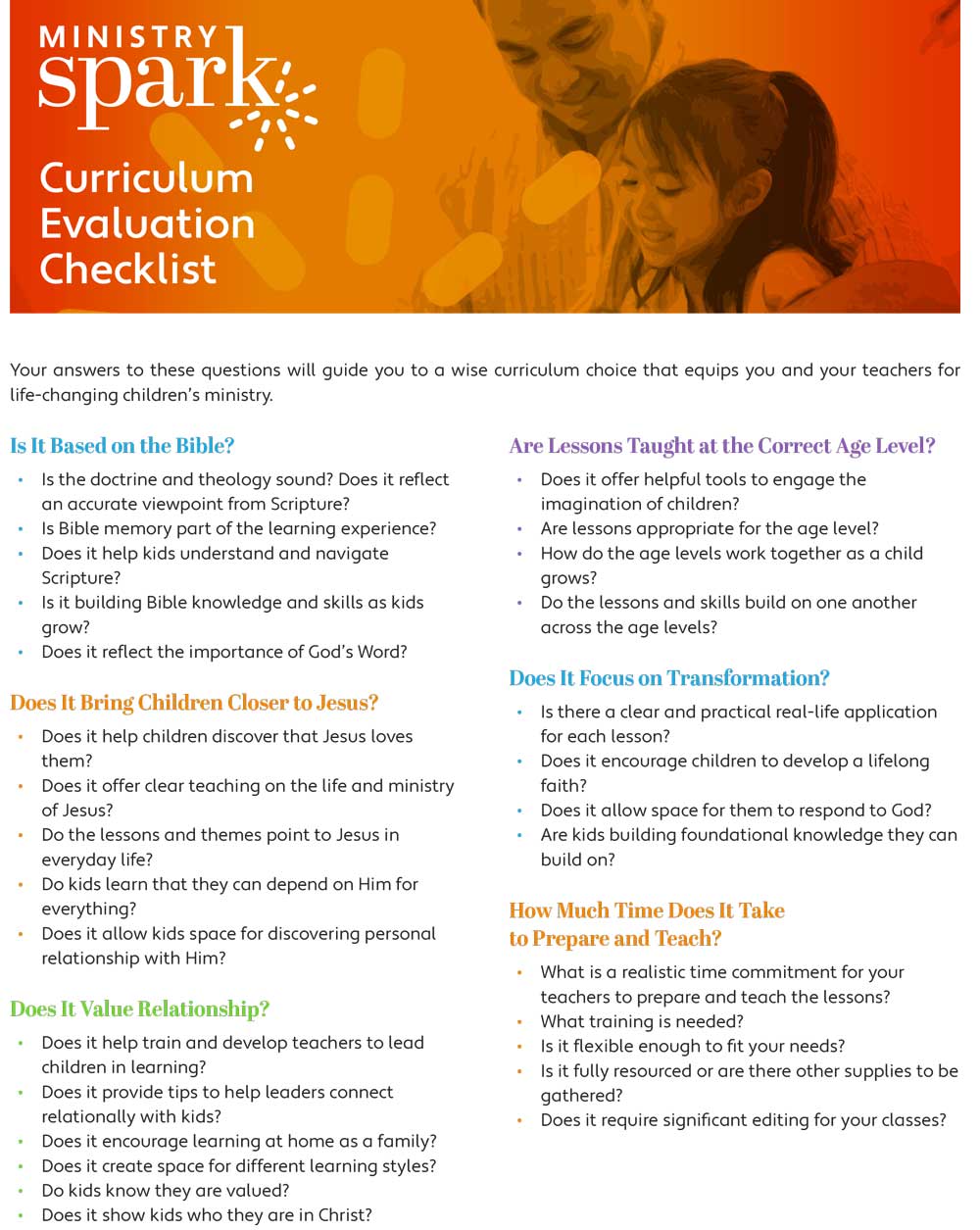One of the most important responsibilities we have in children’s ministry is to evaluate our programs and processes. And while there are many ways to go about this, one of the most effective (and fun!) ways is to invite someone to be an incognito inspector.
What is an incognito inspector? Great question! An incognito inspector is similar to a secret shopper. It’s someone you trust, who you bring into your children’s ministry to observe and interact in real time and offer feedback. We always encourage that the feedback should be constructively honest, so that the elements of your children’s ministry that need a little love get just that.
To fill this position, you’ll want to choose someone who:
- you know and trust.
- your children’s ministry team will not recognize.
- is willing to be bold in carrying out the assignment.
- knows something about what a children’s ministry should function like (another children’s ministry leader or a parent).
Spend time praying and deciding what is most important.
5 Steps to Evaluate Your Ministry with an Incognito Inspector
1. Invite in an Incognito Inspector
This person should meet the requirements we talked through earlier, while also being someone the children in your ministry are willing to interact with. It is a bonus if the person who is helping you has children of their own and are invested in how the church ministers to children.
It’s really important that this person has a strong understanding of children’s ministry (from volunteers to programming) and the church as a whole.

Curriculum Evaluation Checklist

Curriculum Evaluation Checklist

Curriculum Evaluation Checklist
2. Plan Ahead
Walk through the process to evaluate your ministry with your chosen inspector ahead of time. This might include (but certainly isn’t limited to) having the trusted person:
- Attend a typical service, complete the visitor process, and place their kids in the classroom—in other words, participate in the typical process as a visitor.
- Provide feedback either through verbal feedback or a rating system, whichever works best for you. This feedback should cover typical interactions from the experience. For example, Were the volunteers friendly and helpful? Did the volunteers know answers to questions? Was it easy to find classrooms? Was the check-in process understandable and easy? Etc.
- Create some more challenging situations for the volunteers. For example, try to pick up a child without the check-in tag to see how the volunteers handle it. Ask volunteers difficult questions to see how they respond. Or try other challenges which create situations you would like to get feedback on.
3. Evaluate Your Ministry
Now it’s time to carry out the evaluation, remembering to:
- never abuse the participation of the children.
- never put the volunteers in an embarrassing or compromised situation.
- never risk the safety of anyone.
While there are things you will want to test, it’s important to not cross any lines.
4. Debrief with the Inspector
As you debrief, get feedback about what you specifically talked about evaluating, along with any other observations and thoughts they have to contribute.
Some of this feedback will reaffirm things you already know, and some of it might be hard to hear. There will be wins and areas that need improvement in almost every environment, and that’s okay. Don’t be overwhelmed and take one step at a time to improve what needs attention.
During this time also be sure to show the inspector your gratitude with a free lunch, gift card, or some other form of thank-you.
After this time with the inspector, continue to review and evaluate your ministry on your own. Spend time praying and deciding what is most important.
5. Review with Your Team
Now comes the time to share your findings in a fun and instructional way with your team. You could potentially give shout outs for praise but speak generally or privately about the negatives that need improvement. You want your team to feel encouraged and inspired by this ministry evaluation, not discouraged and down on themselves. It’s our job to equip!
It’s important that we continue to work toward a great ministry, while nurturing the key relationships with our leaders.
Try this out! You might just be amazed at what you find.






